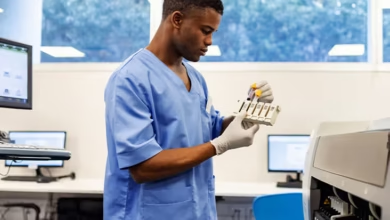Understanding Kidney Pain: Causes, Symptoms, and Remedies

Kidney pain can be concerning and confusing. It often presents itself in the back or sides, leaving people wondering whether it’s just muscle pain or something more serious. This article will guide you through everything you need to know about kidney pain, including its causes, symptoms, and effective remedies.
What Is Kidney Pain?

Kidney pain refers to discomfort or pain that originates from the kidneys. These bean-shaped organs, located on either side of your spine just below the rib cage, play a crucial role in filtering waste and maintaining fluid balance in your body. When they’re not functioning properly, they can send out pain signals to alert you.
Why Kidney Pain Happens
Kidney pain can occur for a variety of reasons. It’s often linked to infections, blockages, or even underlying chronic conditions. Unlike muscle pain, which is usually dull and localized, kidney pain can be sharp, radiating, or accompanied by other symptoms like fever or nausea. Understanding the root cause is key to managing it effectively.
Common Misconceptions
Many people mistake kidney pain for regular back pain. While they can feel similar, the two are quite different. Kidney pain usually feels deeper and is located closer to the sides or under the ribs, while back pain is often muscular and felt in the lower back.
Causes of Kidney Pain
Kidney pain can result from a range of conditions, some mild and others requiring immediate medical attention. Here are some common causes:
1. Kidney Stones
Kidney stones are one of the most common culprits of kidney pain. These hard mineral deposits form when urine becomes concentrated, allowing minerals to crystallize and stick together.
- Symptoms: Sharp, intense pain in the back or side, nausea, vomiting, and possibly blood in the urine.
- Why It Happens: Dehydration and a diet high in salt or certain minerals can increase your risk of developing stones.
- Treatment: Small stones often pass on their own with increased water intake, but larger ones may require medical intervention such as lithotripsy or surgery.
2. Urinary Tract Infections (UTIs)
A UTI that spreads to the kidneys, called pyelonephritis, can cause significant kidney pain.
- Symptoms: Pain in the back, fever, chills, and a burning sensation during urination.
- Why It Happens: Bacteria entering the urinary tract and traveling to the kidneys cause this condition.
- Treatment: Antibiotics are the primary treatment. Drinking plenty of fluids can also help flush out the bacteria.
3. Kidney Infection
Similar to UTIs, kidney infections occur when bacteria invade the kidneys. They can become serious if untreated.
- Symptoms: High fever, side pain, fatigue, and cloudy urine.
- Why It Happens: Often a progression of a UTI that wasn’t treated in time.
- Treatment: Immediate medical attention with antibiotics is crucial.
4. Chronic Kidney Disease (CKD)
While CKD usually develops gradually and doesn’t cause sharp pain, it can lead to discomfort in advanced stages.
- Symptoms: Fatigue, swelling in the legs, and changes in urination.
- Why It Happens: Diabetes, hypertension, or prolonged damage to the kidneys.
- Treatment: Managing the underlying cause and, in severe cases, dialysis or a kidney transplant.
5. Injury or Trauma
A direct impact to the kidney area can cause pain and bruising. This is often seen in accidents or falls.
- Symptoms: Localized pain and tenderness.
- Why It Happens: Physical trauma damages the kidney tissue.
- Treatment: Rest, ice packs, and in severe cases, medical intervention.
Symptoms to Watch For
Kidney pain doesn’t always come alone; it’s often accompanied by other symptoms. Here are some red flags to look out for:
1. Pain Characteristics
- Sharp or severe pain on one or both sides.
- Radiating pain to the lower abdomen or groin.
- Pain that worsens with movement.
2. Urinary Changes
- Blood in urine (hematuria).
- Cloudy or foul-smelling urine.
- Difficulty or pain while urinating.
3. Systemic Symptoms
- Fever and chills.
- Fatigue or a general feeling of unwellness.
- Swelling in the legs, ankles, or face.
If you’re experiencing any of these symptoms along with kidney pain, consult a healthcare provider immediately.
Remedies for Kidney Pain
Managing kidney pain involves addressing the root cause and alleviating discomfort. Here are some effective remedies:
1. Stay Hydrated
- Why It Helps: Drinking plenty of water can flush out bacteria, prevent stones, and support overall kidney health.
- How Much: Aim for 8-10 glasses of water daily unless advised otherwise by a doctor.
2. Over-the-Counter Pain Relief
- What to Use: Medications like acetaminophen can help reduce discomfort. Avoid NSAIDs like ibuprofen if you have kidney issues, as they can worsen kidney damage.
3. Heat Therapy
- How It Helps: Applying a heating pad to the painful area can soothe the muscles and reduce pain.
- When to Use: Use heat for 20 minutes at a time, but avoid placing it directly on the skin.
4. Dietary Changes
- What to Avoid: Limit salt, sugar, and foods high in oxalates (like spinach and nuts) to reduce kidney stone formation.
- What to Include: Add calcium-rich foods and stay away from crash diets that may stress the kidneys.
5. Seek Medical Attention
- When Needed: If the pain is severe, persistent, or accompanied by fever and vomiting, don’t delay seeking help.
Prevention Tips
Preventing kidney pain often involves maintaining overall kidney health. Here are some tips to keep your kidneys in top shape:
- Stay hydrated throughout the day.
- Maintain a balanced diet low in processed foods.
- Exercise regularly to control blood pressure and diabetes.
- Avoid overusing medications that can harm the kidneys.
- Get regular health check-ups, especially if you have a family history of kidney disease.
Final Thoughts
Kidney pain can be a sign of various conditions, from minor to severe. Understanding the potential causes and symptoms can help you take the right steps toward relief and prevention. While some cases can be managed at home with simple remedies, others require immediate medical attention. When in doubt, always consult a healthcare professional to ensure your kidneys stay healthy and functional.



